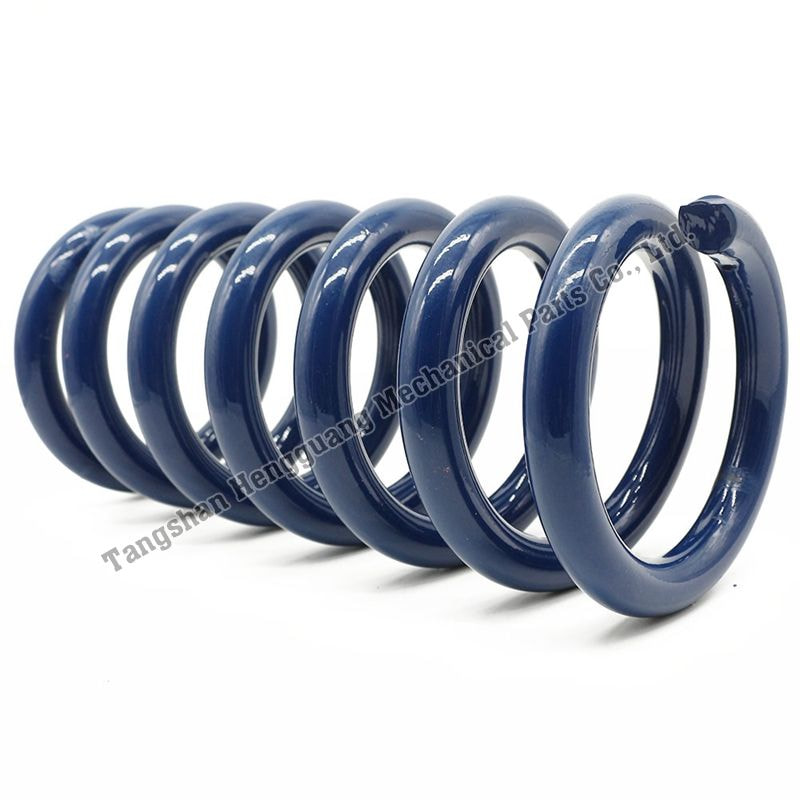How Do You Make a Tension Spring Stronger?
Tension springs play a vital role in various mechanical systems, from automotive applications to industrial machinery. As we delve into the intricacies of these essential components, the question arises: "How do you make a tension spring stronger?" In this article, we will unravel the methods and considerations involved in reinforcing the strength of tension springs.
Understanding Tension Springs
Before exploring ways to enhance their strength, it's crucial to grasp the basics of tension springs. These springs operate by stretching or extending, absorbing and storing energy when subjected to a load, and releasing it when the load is removed. Their resilience and strength are paramount for optimal performance in diverse applications.
Material Matters: Choosing the Right Alloy
The choice of material significantly influences a tension spring's strength. High-quality alloys, such as music wire or stainless steel, offer enhanced durability and tensile strength. Selecting the appropriate material based on the specific requirements of your application lays a robust foundation for a stronger tension spring.
Optimizing Wire Diameter
The diameter of the spring wire is a critical factor affecting its strength. Thicker wires generally result in stronger springs, but finding the right balance is key. Consider the load requirements and available space when determining the optimal wire diameter for your tension spring.
Coiling Configuration: Precision Matters
The configuration of the coil is another factor influencing a tension spring's strength. Precision in the coiling process ensures uniformity and consistency, contributing to enhanced strength. Employing advanced manufacturing techniques and machinery can play a pivotal role in achieving this precision.
Heat Treatment for Increased Strength
Heat treatment is a widely employed technique to enhance the mechanical properties of tension springs. This process involves subjecting the spring to high temperatures, followed by controlled cooling. The result is improved hardness and tensile strength, making the spring more robust and resilient.
Shot Peening: Strengthening the Surface
Shot peening is a mechanical surface treatment that induces compressive stress on the spring's surface. This process helps mitigate the risk of fatigue failure, enhancing the overall strength and longevity of the tension spring.
Considerations for Customization
Tailoring the design of the tension spring to meet specific application requirements is essential for optimizing its strength. Collaborating with experienced engineers or manufacturers can provide valuable insights into customization options, ensuring the spring is precisely tuned for its intended purpose.
Testing and Quality Assurance
Once modifications are made to enhance the strength of a tension spring, rigorous testing is imperative. Thorough quality assurance protocols, including load testing and stress analysis, help validate the effectiveness of the strengthening measures and ensure the spring meets the desired performance standards.
Common Questions About Strengthening Tension Springs
Q: Can any tension spring be strengthened?
A: While many tension springs can undergo strengthening processes, it's crucial to assess the material and design limitations. Consulting with a professional ensures compatibility.
Q: Are there industry standards for tension spring strength?
A: Yes, various industry standards define the requirements for tension springs. Adhering to these standards ensures the springs meet quality and performance benchmarks.
Q: How can I calculate the optimal wire diameter for my application?
A: Consult with engineering experts or use specialized software to perform stress and load calculations, guiding you to determine the optimal wire diameter.
Conclusion
In the realm of tension springs, strength is synonymous with reliability and longevity. By carefully selecting materials, optimizing design parameters, and leveraging advanced manufacturing processes, you can significantly enhance the strength of tension springs, ensuring they meet the demands of diverse applications.



